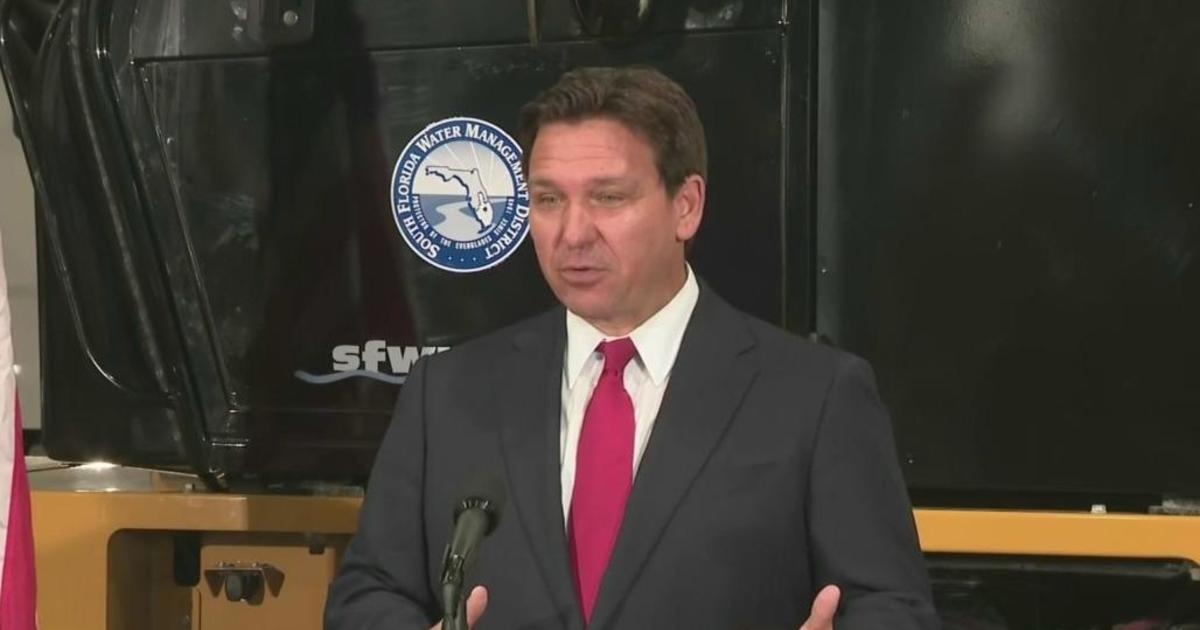Performance Could Alter University Funding
TALLAHASSEE (CBSMiami/NSF) - Lawmakers will consider a plan this spring that would fund the state's 12 universities based in part on performance, a move that could see some universities lose money and others gain it.
The new model would divvy up $80 million of the system's nearly $3.6 billion under Gov. Rick Scott's spending proposal. And while the idea seems to have widespread support at the Capitol, at least in concept, there are also bipartisan warnings that the devil of the new formula will be in the details.
Under the plan, universities could score up to five points for improvement or "excellence" on each of 10 measurements of performance. Seven of the benchmarks would be shared by all 12 universities, while another would eventually be used by every school except New College.
For example, schools would receive five points if the median income of alumni who live in Florida a year after graduation was at least $40,000. If it was $20,000, they would receive just one point.
Finally, each university would be graded based on a performance measurement unique to that school laid out by the university's board of trustees and also would be graded on a measurement approved by the Florida Board of Governors, which oversees the university system and is pushing for the new funding system.
"I believe that these metrics are designed in such a way that every university has the opportunity to make decisions and be successful and to receive the financial recognition that comes with that," new university system Chancellor Marshall Criser said in a recent interview with The News Service of Florida.
Criser said that getting funding for the new model would be his top priority in the 2014 legislative session, which begins next month. The Senate Education Appropriations Committee will hold a hearing on the proposal Wednesday.
While universities received a small sum of performance funding last year, this year's plan would be based on the new benchmarks and has a novel concept -- half of the $80 million would come from existing funding for the universities. That means that some schools would lose money if they don't score well enough on either improvement or excellence.
After both scores are calculated, a university can rely on whichever is higher for both the new funding and the existing funding.
Any university that didn't score at least 26 points on one of the measures would see a 1 percent reduction in its current funding and wouldn't be eligible for any of the $40 million in new funding. The three lowest-scoring universities wouldn't receive the new funding even if some of them score at least a 26.
The stakes could grow. Speaking to the Florida Chamber of Commerce on Tuesday, Senate President Don Gaetz, R-Niceville, said he and House Speaker Will Weatherford want to set aside $200 million, of which $100 million would be in new funding, as a performance reward for the university system.
"Those universities that take on tough challenges, and do well in preparing students for the economy, they ought to benefit from that," Gaetz said.
The proposal is not universally popular, even among the Board of Governors. Carlo Fassi, the student representative on the board, voted against the proposal at a meeting last month. Fassi questioned the provision that would allow universities to be stripped of their current funding.
"I don't believe this should be about losers," he said.
Some lawmakers are also cautious about the idea while supporting it in principle.
"It's time for a certain level of performance funding," said Sen. Bill Montford, a Tallahassee Democrat who serves on the Senate education funding panel. "But we've got to be realistic about it, and we should not let our desire for performance funding upset or have a negative influence on the good things we've got going on in our university system."
And Senate Rules Chairman John Thrasher, R-St. Augustine, told members of the Senate Appropriations Committee last week that different universities should be measured differently.
"As we look at performance funding, I hope that we won't necessarily judge, say for example, the University of West Florida or the University of North Florida with the same kind of potential criteria as we judge Florida State University or the University of Florida or South Florida," he said, "because they do have different missions, I think."
"The News Service of Florida's Brandon Larrabee contributed to this report."



